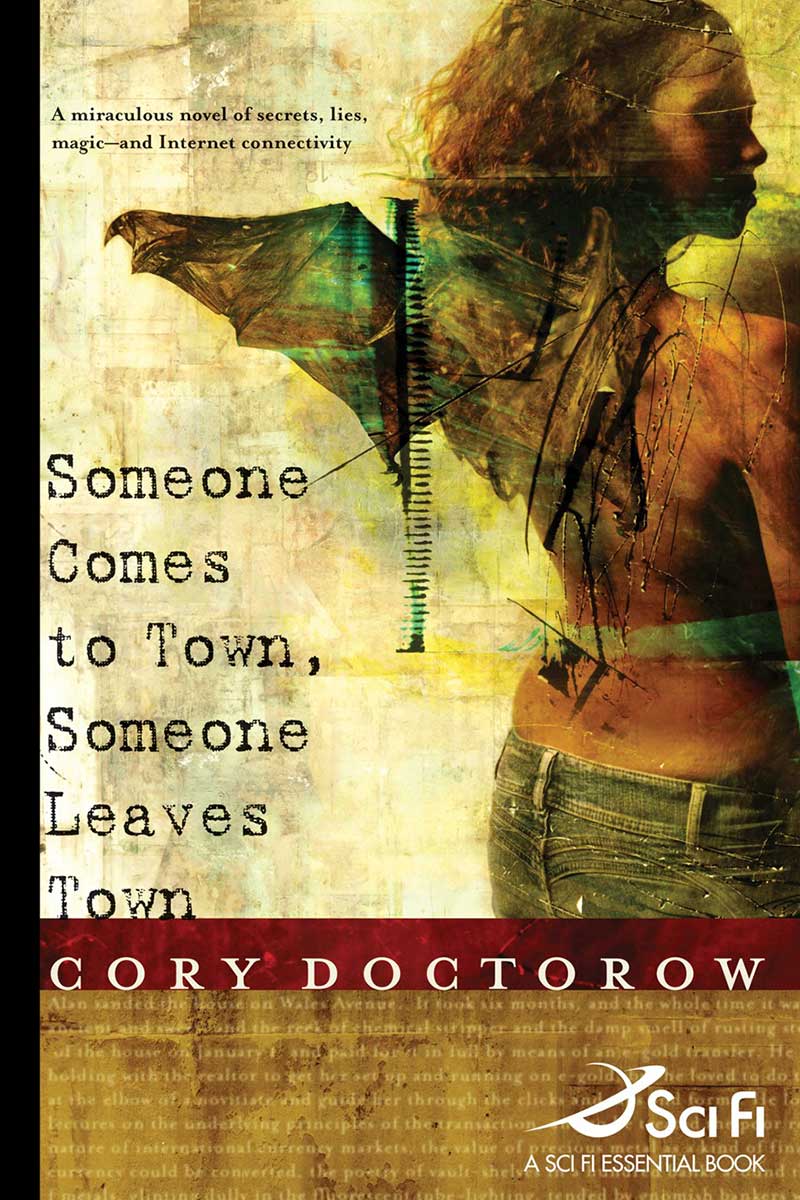At the heart of these juxtapositions — back-country living versus high technology, freaks and monsters versus everyday, normal people — are Doctorow’s propositions about the democratic flow of information and communications. Who are the real “lumbering dinosaur[s] . . . thrashing in the tar pit,” the regimented, slow-moving corporation that regulates communications, or the characters like Alan, who argue that the free wireless network project is a protection of fundamental human rights?
One more interesting point about the science in this story: It isn’t futuristic or untried, except, maybe, that the citywide network will be enabled by hardware that has been constructed entirely from garbage (discarded computer parts found in dumpsters).
“What am I?” The question is ongoing. Doctorow uses Alan as an embodiment of self-discovery on individual and cultural levels. With Alan’s efforts to spearhead the wireless movement (executed by street people, squeegee kids and junkies), Doctorow suggests that the notions of high and low tech, archaic and advanced, have less to do with the technologies we create than with the ways that we use them.



























